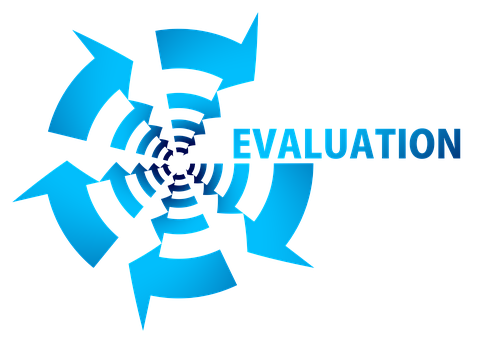As money gets tighter and grant seeking more competitive, funders are increasingly concerned that their grants go to organisations that can produce and share measurable results. A strong project idea is no longer enough; funders want to see a plan for evaluation into the project.
A strong and well–conceived evaluation plan is a crucial part of successful proposal. This is not because funders usually require evidence that their grantees will be able to assess the results of their projects but also because
What then is Evaluation?
Evaluation is the process of determining whether a given project has achieved its specific aims and objectives. An evaluation should provide periodic progress reports to the project staff to enable them modify methods during the project, evaluate the strengths and weaknesses of the operation, compare effectiveness of the methods and report findings on the projects overall impact.
Your evaluation must provide objective data to enable stakeholders and funders to decide if the project should continue, if its results should be disseminated and if the results are valid. Project evaluation can also produce information to assess needs for another grant project.
Interestingly, most grant seekers find this evaluation part of a project very difficult to write. But let me advice that this is a necessity. Before you submit a proposal to a funder, it’s a good idea to find out what it expects in the way of evaluation.
Unfortunately, funders often provide very little information about what they meant to see in an evaluation plan. Here are six basic guidelines for you to follow in developing your evaluation plans.
1. You evaluate objectives: Developing concrete, measurable objectives during the proposal planning process is the key to a viable evaluation design. If the objectives are specific and measurable and contain expected outcomes, then they can be evaluated.
Although you do not evaluate activities, you should include in the plan how you will assess the progress of staff as the project gets underway.
2. Use multiple measures: An evaluation plan should explain how you will collect valid, credible information systematically to determine if the project goal has been met and objectives achieved.
Usually, funder like to see hard data on empirical research as well as qualitative information. It also helps to include anecdotal or observational information to give the funder a feel for the personal impact of the project they are supporting.
3. Chose an expert as an evaluator or an evaluation consultant. Ask a local professor or a nationally known expert to help design and conduct the evaluation. Selecting an expert in the field will lend credibility to your proposal and impress the funder.
It is better to identify the evaluator in the proposal than say that one will be selected later. Also, it strengthens the proposal to show that the evaluator was involved in planning and that the evaluation design has been completely prepared before the project starts.
4. Write the Evaluation Early – As you begin to plan your project, ask the evaluator to participate. Along with assessing the need for the project, and determine how to meet it the evaluator can help you build the data collection procedures and evaluation measures you will need. The valuator can offer many new ways of collecting evaluation data.
Developing project goals, objectives and plan of operating simultaneously with an evaluation design can result in a strong project with clear and measurable outcomes. The proposal should demonstrate that the need for the project, the goals, objectives and evaluation measures are all interrelated.
5. Create a simple, basic evaluation plan. All an effective evaluation plan has to do is produce reliable, objective and quantifiable data to determine the results of the project and whether they are attributable to the project itself. The plan should describe measurable criteria for assessment, data collection methods and record keeping activities, and include a timeline for reporting finding to the project director for continual revision fo methodology.
Data collected for measurements can include statistics, record, observations, interviews and questionnaires responses. Most evaluations use data in a summative fashion to assess overall impact of the grant as well as employ formative evaluation methods to monitor the progress of the activities.
6. Start the evaluation when the grant begins. An effective evaluation should start as soon as the grant project begins. The projects progress should be monitored continually, and the evaluator should be a key member of the project staff from the beginning. By continuously monitoring progress, the evaluator can help the project director keep activities on track on time.
